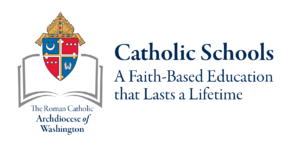Archdiocesan School Safety
We strongly support the safety, security and well-being of all children. The Archdiocese has adopted Policies for Catholic Schools (Policies 3540 through 3543) that support the safety and security of the children in our schools and the entire school community.
Child and Youth Protection
The Archdiocese of Washington Catholic schools are committed to keeping children safe and bringing healing to those harmed. You are invited to learn more here about our child protection policy; to sign up for background checks and training if you are seeking to work or volunteer with young people in an archdiocesan Catholic school; and, perhaps most importantly, report suspicion of child abuse by visiting the Archdiocese of Washington Child Protection Police webpage.
All-Hazards Approach and Framework
Archdiocesan Catholic schools proactively identify, assess, and evaluate potential hazards, risks, and vulnerabilities that impact the safety, security, and well-being of students and staff.
Four Phases of Emergency Management
The U.S. Department of Education Office of Safe and Healthy Students has developed a cycle of crisis planning and emergency management guidelines for schools to follow as they develop and enhance their emergency preparedness and response management plans and efforts. The cycle of crisis planning is sequential and identifies the four phases of emergency management as Prevention-Mitigation, Preparedness, Response and Recovery. These critical phases are interconnected and serve as the foundation for a successful response to a school-related emergency and/or crisis. The figure illustrates the sequence of the four phases and summarizes key action steps of each phase.
Crisis Intervention Team Support
We employ a specialized group of licensed counselors and administrators who assist in responding to a school that is experiencing a sudden loss of a community member or addressing difficult news, like a school closure. On average, the team members participate in 12 hours of training per academic year.
Advanced Communication to Parents
Clear and timely communication with families is our primary goal during a school crisis or emergency. Our schools use an advanced communication resource to provide phone calls, text messages and emails to parents during and after a crisis or emergency.
